
|
|
|
|
 |
 |
| INDUSTRIAL FORUM |
|
 |
| . |
|
|
Rezal Khairi Ahmad
NanoMalaysia Berhad, Malaysia
Invited - Industrial Forum
Dr. Rezal Khairi Ahmad was appointed as the Chief Operating Officer of NanoMalaysia in June 2012. As NanoMalaysia first employee, he crafted the company structure, developed business model and corporate positioning strategy relative to like-minded government agencies and relevant industries In February 2013, Dr Rezal’s appointment was upgraded to Chief Executive Officer.
|
|
|
|
|
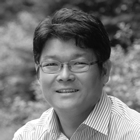 |
| WORKSHOP 6 |
|
 |
| . |
|
|
Jong-Hyun Ahn
Yonsei University, South Korea
Invited – Workshop 6: Wearable and flexible devices
Jong-Hyun Ahn holds Underwood distinguished professor at Yonsei University, Korea. He has worked as a director of the Center for strain engineered electronic devices, supported by National Research Foundation of Korea and an associate editor of NPG Asia Materials. His research includes fundamental and applied aspects of nanomaterials and fabrication for flexible and stretchable electronic devices, and recent interest focuses on 2D material based wearable electronics with an emphasis on bio-applications. Jong-Hyun Ahn has authored more than 150 papers, and is an inventor of more than 60 patents and has received numerous scientific awards, including the National Young Scientist Award and the IEEE George Smith Award.
|
|
|
|
|
 |
| INDUSTRIAL FORUM |
|
 |
| . |
|
|
Laura Armiento
Grafoid Inc., Canada
Invited - Industrial Forum
|
|
|
|
|
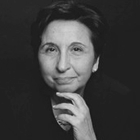 |
| INVITED |
|
 |
| . |
|
|
María C. Asensio
ICMM-CSIC, Spain
Invited – Plenary Session
Maria-Carmen Asensio, currently permanent scientist staff at “Synchrotron SOLEIL”, one of the French TGIR (Très Grandes
Infrastructures de Recherche) and partner of the Université Paris Saclay. She is also Professor of investigation (on leave) at
the Institute of Materials Science of Madrid (CSIC).
Scientific production: 304 international journals, 2 book chapters, 80 invited lectures
Factor H: 36 and i10-index: 99 (Google scholar),
Citations more than 5670
Co-supervision of doctoral students: 11 theses supported.
|
|
|
|
|
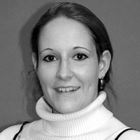 |
| INVITED |
|
 |
| . |
|
|
Claudia Backes
University of Heidelberg, Germany
Invited – Plenary Session
Claudia has received her Ph.D with honors in 2011 from the University of Erlangen, Germany. After some time as deputy executive director in the Erlangen Cluster of Excellence “Engineering of Advanced Materials” Claudia received a fellowship grant from the German Research Foundation (DFG) in 2012 and moved to Jonathan Coleman’s groups at Trinity College Dublin, Ireland. In 2015, she returned to Germany and started her independent research at the Chair of Applied Physical Chemistry at the Heidelberg University funded through the prestigious Emmy Noether funding from the German Research Foundation from 2016. Currently, her team comprises five PhD students, one postdoc and several undergraduate students. Claudia’s research interests are in liquid exfoliation, nanosheet size control and size-dependent properties, chemical modification and production of composites and hybrid structures.
|
|
|
|
|
 |
| INDUSTRIAL FORUM |
|
 |
| . |
|
|
Terrance Barkan
The Graphene Council, USA
Invited - Industrial Forum
For more than 25 years, Terrance Barkan CAE has been building international trade and professional associations on a global basis. His international management career has taken him to more than 60 countries on 6 continents around the world on association strategy development projects. He has served as the Executive Director for a number global and multinational organizations and was the founder of the very first truly global international association management company. Today, he focuses exclusively on helping associations build international growth strategies and business plans. As an international association specialist, he has accumulated a significant body of knowledge and experience in the not-for-profit sector. He has supported the creation of new volunteer organizations, guided existing organizations, advised volunteer leadership on governance and strategy, and facilitated alliances and mergers, all with a creative and pro-active approach to client mandates.
|
|
|
|
|
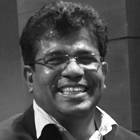 |
| INDUSTRIAL FORUM |
|
 |
| . |
|
|
Siva Böhm
Talga Technologies Ltd, UK
Invited - Industrial Forum
Dr. Siva Böhm received his first degree in Berlin in Chemical Engineering and an M.Sc. in Applied Chemistry at Hahn Meitner Institute (MPI) in Berlin. After gaining his PhD at the University of Bath in the field of Chemistry/Electrochemistry, Dr. Böhm worked as scientific officer and research fellow at different academic institutions; University of Wales Swansea, TU Delft and the University of Birmingham. During 2014 – early 2016, he was an honorary visiting Professor at India Institute of Technology Bombay working in the field of synthesis of Graphene and its applications in protective coatings, corrosion protection, energy harvesting and storage, construction materials, leightweight composite as well as sensors. Dr. Böhm has 16 years of industrial research experience (Tata Steel & Tata Group) in various research fields; metallurgy, corrosion inhibition, protective coatings in construction, electrical steel and automotive industry, functional and smart coatings and various aspects of nanotechnology, including synthesis and applications of Graphene. He is responsible for developing and implementing a number of new products at commercial scale, holds 26 patents and has written over 85 scientific publications. Since 2016, Dr. Böhm works as Chief Technology Officer at Talga Technologies Ltd, Cambridge UK & Talga Advanced Materials GmbH, Germany, where he is focussing Swedish Ore to very Few layer Graphene and developing value-added products using industrial high volume Graphene, Graphite and Graphite Ore. Dr. Siva Böhm is a Member of Royal Society of Chemistry with a charted chemist status and Fellow of Technical of Surface Coatings & Oil and Colour Chemist Association. In addition, he is reviewer for several peer-reviewed journals and a member of the editorial board at Flatchem. Recently, Siva has been awarded the Royal Society Industrial Fellowship.
|
|
|
|
|
 |
| INDUSTRIAL FORUM |
|
 |
| . |
|
|
Paolo Bondavalli
Thales Research & Technology, France
Invited - Industrial Forum
Dr Paolo Bondavalli, male, is in charge of the transvers topic on nanomaterials at Thales Research and Technology (the central research lab of Thales group). He graduated in Physics in 1995 at the University of Parma, obtained his PhD in 2000 at INSA de Lyon and his HdR in 2011 on a work on carbon nanotubes based networks. He has a strong experience in leading and participating in European and French Research project (20 years). He is presently in charge of the task on supercapacitors of the Graphene Flagship initiative. He is the author of more than 60 papers and he has around 60 invited and keynote talks in international conferences. He is the author of the book “Graphene and related materials: properties and applications” edited by Elsevier in Octovber 2017. He is expert for H2020, Eurostars, Euripides, Flag-Era and National French Research Agency member of the Committee ‘Sensors and instrumentations’. He reviewer for IOP, Springer, Elsevier…
|
|
|
|
|
 |
| INDUSTRIAL FORUM |
|
 |
| . |
|
|
Vincent Bouchiat
Institut Néel, CNRS-Grenoble, France
Invited - Industrial Forum
Vincent Bouchiat joined CNRS-Grenoble in 2001. He received an engineer degree from ESPCI in 1993 and a Master Degree from the University of Paris, Pierre & Marie Curie in 1993. After completing his Ph.D. at Quantronics group in CEA-Saclay in 1997 under supervision of Michel Devoret and Daniel Estève, he got CNRS position the same year at University of Marseilles.
He received the Visiting Miller Professorship Award from University of California, Berkeley in 2007, and the Lee Hsun Research Award from the Chinese Academy of Sciences (2017). He is currently a member of the selection panel committee of the Canadian Research Agency NSERC
|
|
|
|
|
 |
| INDUSTRIAL FORUM |
|
 |
| . |
|
|
Alba Centeno
Graphenea, Spain
Invited - Industrial Forum
Dr Alba Centeno Perez. Graduated in Chemistry by the University of Oviedo. She carried out her doctoral studies in the Instituto Nacional del Carbon (INCAR-CSIC) in the field of Carbon based materials and received her PhD degree in 2010. During her PhD, she did two pre-doctoral stays in the Forschungszentrum Jülich, Institute for Energy Research, Department of Microstructure and Properties of Materials (Germany). As a result of the scientific impact of her thesis she received an award by the University of Oviedo for the best PhD Thesis defended in the field of Materials Science in the years 2010-2011. She joined GRAPHENEA in 2010 as Research Scientist and is author and co-author of more than 50 publications, including one Nature, one Science and 3 patents. Her research interest includes carbon-based materials, fabrication and characterization, with special emphasis on Graphene. She did several short stays in Centers such as the Microsystems Technology Laboratories of Massachusetts Institute of Technology (MIT), Institute Heterogeneous Materials Systems of Helmholtz-Zentrum Berlin für Materialien und Energie and ST Microelectronics in order to extend her expertise in Graphene field and promote graphene into industrial applications.
|
|
|
|
|
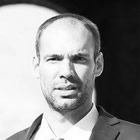 |
| INDUSTRIAL FORUM |
|
 |
| . |
|
|
Marc Chaigneau
HORIBA FRANCE SAS, France
Invited - Industrial Forum
AFM-Raman Product Manager Oversee development, applications, worldwide marketing and sales of Raman spectroscopy products coupled with Scanning Probe Microscopy (SPM) for Tip Enhanced Raman Spectroscopy (TERS). Survey new technologies and suggest ideas for new developments that could give us an edge on the market. Support Sales teams worldwide. Evaluate client special requirements feasibility, cost and time frame with R&D in our French and US offices. Business development including marketing, web advertising and sales. Development of technical documents to help Sales People quote, calculate specifications, answer bid requests etc...
|
|
|
|
|
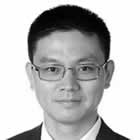 |
| INVITED |
|
 |
| . |
|
|
Yuan Chen
The University of Sydney, Australia
Invited – Plenary Session
Yuan Chen received a bachelor’s degree from Tsinghua University and a Ph.D. from Yale University. He is a Professor at The University of Sydney. His research focuses on carbon materials and their sustainable energy and environmental applications, including supercapacitors, Zn batteries, carbon-based electrocatalysts, carbon-based membranes, and antibacterial coatings. He is a fellow of the Institution of Chemical Engineers, a fellow of the Royal Society of Chemistry (UK) and Royal Australian Chemical Institute. He currently serves as an editor for CARBON and Chair of Australian Carbon Society.
|
|
|
|
|
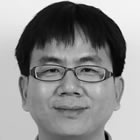 |
| INDUSTRIAL FORUM |
|
 |
| . |
|
|
Seungmin Cho
MCK TECH Co. Ltd., South Korea
Invited - Industrial Forum
Seungmin Cho received his BS and MS in Aerospace Engineering from Korea Advanced Institute of Science and Technology (KAIST), Daejeon, South Korea in 1994 and 1996. He received his Ph.D. degree in Mechanical Engineering from University of Maryland, College Park, US in 2005. In 2005, he joined Hanwha Techwin, where he worked as a senior research engineer working on characterization and fabrication of advanced substrates. From Jan. 2010 to Jul. 2017, he was in charge of graphene researches in Hanwha Techwin as a group leader. On Sep. 2017 he founded MCK Tech and serves as a chief executive officer
|
|
|
|
|
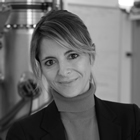 |
| INDUSTRIAL FORUM |
|
 |
| . |
|
|
Camilla Coletti
IIT, Italy
Invited - Industrial Forum
Camilla Coletti is a tenure track researcher at the Istituto Italiano di Tecnologia (IIT) where she leads the research line 2D Materials Engineering (https://www.iit.it/research/lines/2d-materialsengineering).
She received her MS degree in electrical engineering from the University of Perugia in 2004 and her PhD degree in electrical engineering from the University of South Florida in 2007. She is an expert in the synthesis of highly-crystalline graphene via chemical vapor deposition (CVD) and has an extensive background in the investigation of the electronic, chemical and structural properties of 2D materials. Her research is currently focused on: (i) synthesis and integration of scalable 2D materials for optoelectronics and photonics; (ii) interface engineering of 2D heterostructures. She is author of more than 80 peer-reviewed publications, authored 4 book chapters, edited 1 book, holds 2 international patents and delivered more than 40 invited talks at international conferences.
|
|
|
|
|
 |
| WORKSHOP 5 |
|
 |
| . |
|
|
Cecile Delacour
Institut NEEL / CNRS, France
Invited – Workshop 5: Biosensors and Medical Applications
Cécile Delacour is a reseacher of the CNRS-Grenoble. She obtained an engineer degree in nanosciences from Phelma (INPG), a Master’s degree and a PhD in Physics from the University Grenoble Alpes. After her PhD on superconducting quantum devices, she worked at the CEA-Leti on plasmonic devices. She then received a position at the CNRS-Grenoble in 2011 to lead interdisciplinary research at the Neel Institut (Grenoble, France). Her research focuses on information processing within neuron networks and new tools and methods to interface them at multiple scales, including with 2D materials and nanoelectronics.
|
|
|
|
|
 |
| INVITED |
|
 |
| . |
|
|
Lucia Gemma Delogu
Insitute of Pediatric Research, Padova, Italy
Invited – Plenary Session
Dr. Lucia Gemma Delogu served the University of Sassari, Italy, as Assistant Professor of Biochemistry (2012-2017). She has worked at the University of Southern California, Los Angeles (2007-2009). Dr. Delogu has been appointed as Senior Visiting Professor under the “Program Excellence in Science” at Technische Universitat Dresden, Germany (2016, 2017). She has received several awards including the Marie S. Curie Individual Fellow by the European Commission, the “Bedside to bench & Back Lecture Series Achievement Award” from the National Institute of Health, Bethesda, USA (2013) and in 2011 she was selected as one of the “200 Best Young Talents of Italy” from the Italian Ministry of Youth (Rome, Italy). She has been the Scientific Coordinator of two interdisciplinary European Projects on Nanomedicine involving 10 leading Institutions in EU and extra EU Countries. Dr. Delogu in 2018 joined the Institute of Pediatric Research in Padua Italy where she is currently leading the ImmuneNano-lab www.delogulab.eu Dr. Delogu’s research focus on three pillars: i) the revealing of nanomaterial immune compatibility and intrinsic immune-properties ii) the development and assessment of nanomaterials for tissue engineering iii) the study of nanomaterials applications in space biology.
|
|
|
|
|
 |
| WORKSHOP 4 |
|
 |
| . |
|
|
Vito Di Noto
University of Padova, Italy
Invited – Workshop 4: Energy
Vito Di Noto is Full Professor of Electrochemistry for Energy and Solid-State Chemistry in the Department of Industrial Engineering of the University of Padova, Italy. His research activities focus on the synthesis, physicochemical characterization and testing in prototype devices of electrode and electrolyte materials for application in electrochemical energy conversion and storage devices (e.g., secondary batteries, fuel cells and redox flow batteries). Vito Di Noto is author or co-author of more than 280 publications, including 24 patents. His h-index is 42.
|
|
|
|
|
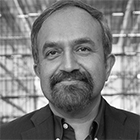 |
| WORKSHOP 6 |
|
 |
| . |
|
|
Ananth Dodabalapur
The University of Texas at Austin, USA
Invited – Workshop 6: Wearable and flexible devices
Dr. Ananth Dodabalapur is the Motorola Regents Chair in Electrical and Computer Engineering #1 in the Department of Electrical & Computer Engineering at The University of Texas at Austin. He has published over 350 articles, a majority of them in refereed journals and has more than 27 U.S. patents issued. He is a co-recipient of the 2002 Award for Team Innovation of the American Chemical Society and is a Fellow of IEEE.
Dr. Dodabalapur's teaching interests are in the areas of electronic circuits (undergraduate), solar energy conversion devices (undergraduate), organic and thin-film semiconductors (graduate), and charge transport in organic semiconductors (graduate).
|
|
|
|
|
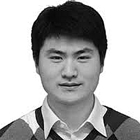 |
| WORKSHOP 2 |
|
 |
| . |
|
|
Renhao Dong
TU Dresden, Germany
Invited – Workshop 2: Chemistry 2DM
Renhao received his PhD in Physical Chemistry from Shandong University in 2013. Since 01/2017, he is a research group leader at the Chair for Molecular Functional Materials in TUD. His current research interest focuses on synthesis of organic 2D crystals (2D polymers/COFs/MOFs) and their applications in electronics and energy technology.
|
|
|
|
|
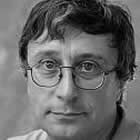 |
| WORKSHOP 3 |
|
 |
| . |
|
|
Vladimir Falko
National Graphene Institute, University of Manchester, UK
Invited – Workshop 3: Theory & Simulation
Vladimir Falko is condensed matter theorist responsible for many advances in understanding of electronic and optical properties of two-dimensional materials and their heterostructures (graphene, transition metal dichalcogenides, post-transition metal chalcogenides) and for various aspects of theory of quantum transport and fundamentals of nanoelectronics (ORCID 0000-0003-0828-0310). Humboldt Fellowship, EPSRC Advanced Fellowship, ERC Advanced Investigator Grant, ERC Synergy Grant, and Royal Society Wolfson Foundation Research Merit Award have marked his career; Clarivate Analytics identified him as Highly Cited Researcher in 2015, 2016, 2017, 2018. Falko was the initiator of ‘Graphene Week’ conference series and a Chair-organiser more than 30 other international meetings; he is founding Editor-in-Chief of the IoP Journal ‘2D Materials’, and he serves as Division Head and Workpackage leaders in the European Graphene Flagship Project. Currently, Falko is Director of National Graphene Institute and Professor of Condensed Matter Theory (Head of Theory Division in the School of Physics & Astronomy) at the University of Manchester
|
|
|
|
|
 |
| INDUSTRIAL FORUM |
|
 |
| . |
|
|
Andrea Ferrari
Cambridge Graphene Centre, University of Cambridge, UK
Keynote - Industrial Forum
Andrea C. Ferrari earned a PhD in electrical engineering from Cambridge University, after a Laurea in nuclear engineering from Politecnico di Milano, Italy. He is Professor of Nanotechnology and the Director of the Cambridge Graphene Centre and of the EPSRC Centre for Doctoral Training in Graphene Technology. He is Fellow of Pembroke College, the American Physical Society, the Institute of Physics and the Materials Research Society. His research interests include nanomaterials growth, modelling, characterization, and devices. He was awarded the Royal Society Brian Mercer Award for Innovation, the Marie Curie Excellence Award, the Philip Leverhulme Prize, The EU-40 Materials Prize, The Royal Society Wolfson Research Merit Award. He is also the Chairman of the Executive Board of the EU Graphene Flagship.
|
|
|
|
|
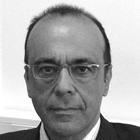 |
| INDUSTRIAL FORUM |
|
 |
| . |
|
|
Costas Galiotis
FORTH/ ICE-HT and University of Patras, Greece
Invited - Industrial Forum
Costas Galiotis is the Principal Investigator (PI) of the ERC Advanced – Tailoring Graphene project. He is a Professor at the Department of Chemical Engineering (Univ. of Patras) and former Director of the Institute of Chemical Engineering Sciences (ICE-HT) which is one of the 7 academic research institutions of the Foundation of Research and Technology-Hellas (FORTH). In its over 26 years of operation FORTH/ ICE-HT has developed into a world-leading centre for the advancement of high quality scientific knowledge in the fields of material science and in the computer aided design and simulation of new materials and processes. It comprises of approximately 150 personnel and has a running yearly budget of 5 M€. Prof. Galiotis is also a member of the Board of Directors of FORTH (since July 2007). FORTH has been ranked as the first Research Centre in the field domain in Greece in 3 successive evaluations. Prof. Galiotis had an auspicious term of office as Director of the Institute in the years 2009-2014. Being also the coordinator of the Hellenic participation and national representative of “Graphene” he contributed in establishing the Graphene Center by joining the research forces of three FORTH institutes, ICE-HT, IESL and ICAM. Despite the Country's intense economic situation he expanded the Institute by literally setting the foundations to the Institute's new modern building that will house research laboratories.
|
|
|
|
|
 |
| INDUSTRIAL FORUM |
|
 |
| . |
|
|
Khasha Ghaffarzadeh
IDTechEx, UK
Invited - Industrial Forum
Dr Khasha Ghaffarzadeh is the Research Director at IDTechEx. He has helped deliver over 50 consulting projects for our clients across the world. The projects have covered custom market research, technology scouting, partnership/customer development, technology roadmapping, product positioning, competitive analysis and investment due diligence. The projects have focused on a variety of emerging technologies such as energy storage, advanced materials, functional inks and coatings, novel display technologies, 3D printing, photovoltaics, printed electronics, electronic textiles, sensors, actuators, etc
|
|
|
|
|
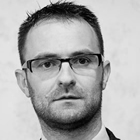 |
| INDUSTRIAL FORUM |
|
 |
| . |
|
|
Julio Gómez
Avanzare, Spain
Invited - Industrial Forum
Julio Gomez is the Founder of AVANZARE, company producer of graphene and other 2D materials and its composites . He is primarily interested in the mechanical properties of atomically thin materials such as graphene. He received his B.S. degree in Chemistry from Universidad Complutense de Madrid (1995), receiving the and a Ph.D. in Chemistry (2000) from University of La Rioja where he studied the preparation and electrical and optical properties of nanosize metallic clusters, and a postdoctoral researcher position in the Laboratoire de Synthèse Organique, University of Nantes-CNRS After finishing his Ph.D, he spent 3 years as assistant Professor in Universidad de La Rioja and 2 years as an Area Manager in the research centre CIDETEC studying electrochemical systems before joining AVANZARE at the end of 2004. His awards include among others the best B.S. degree in Chemistry in 1995 award in the University Complutense de Madrid, the best PhD degree in Science and Technology award in the University of La Rioja from the years 1999-2000, National award Entrepreneur of the year 2008 in Spain, best product NANOAWARDS 2008 (USA), F&S best practices in innovation 2013 (UK). Author of 47 papers H-index 22.
|
|
|
|
|
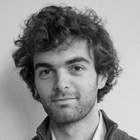 |
| INDUSTRIAL FORUM |
|
 |
| . |
|
|
Stijn Goossens
ICFO - The Institute of Photonic Sciences, Spain
Invited - Industrial Forum
Dr. Stijn Goossens has been working in graphene research for more than ten years and is currently based at ICFO. There, he leads an incubation project that is developing a new broadband light detection technology based on graphene and colloidal quantum dots. His team of graphene experts have already realized a CMOS integrated broadband camera, compact spectrometer and a flexible and transparent heart rate sensor. Demonstrators based on the hybrid graphene quantum dot technology were exhibited to the public four consecutive years at the Mobile World Congress (>100,000 visitors) in Barcelona.
|
|
|
|
|
 |
| INVITED |
|
 |
| . |
|
|
Sarah Haigh
The University of Manchester, UK
Invited – Plenary Session
Prof Sarah Haigh is Director of the UKs largest Electron Microscopy Centre and Professor of Materials Characterisation at the University of Manchester. She completed her PhD in Material Science at the University of Oxford, then worked as application specialist at JEOL UK before starting her academic career at Manchester in 2010. She has pioneered cross sectional scanning transmission electron microscopy imaging of 2D materials vertically stacked heterostructures. Her research is focused on developing STEM techniques for advanced nanomaterials characterisation, with a particular interest in imaging under more realistic environmental conditions.
|
|
|
|
|
 |
| INVITED |
|
 |
| . |
|
|
Mark Hersam
Northwestern University, USA
Invited – Plenary Session
Mark C. Hersam is the Walter P. Murphy Professor of Materials Science and Engineering and Director of the Materials Research Center at Northwestern University. He also holds faculty appointments in the Departments of Chemistry, Applied Physics, Medicine, and Electrical Engineering and Computer Science. He earned a B.S. in Electrical Engineering from the University of Illinois at Urbana-Champaign (UIUC) in 1996, M.Phil. in Physics from the University of Cambridge (UK) in 1997, and a Ph.D. in Electrical Engineering from UIUC in 2000. His research interests include nanomaterials, nanomanufacturing, scanning probe microscopy, nanoelectronic devices, and renewable energy technologies. Dr. Hersam has received several honors including the Presidential Early Career Award for Scientists and Engineers, TMS Robert Lansing Hardy Award, AVS Peter Mark Award, MRS Outstanding Young Investigator, U.S. Science Envoy, MacArthur Fellowship, and seven Teacher of the Year Awards. An elected member of the National Academy of Inventors, Dr. Hersam has founded two companies, NanoIntegris and Volexion, which are commercial suppliers of nanoelectronic materials and lithium-ion battery materials, respectively. Dr. Hersam is a Fellow of MRS, AVS, APS, AAAS, SPIE, and IEEE, and also serves as an Associate Editor of ACS Nano
|
|
|
|
|
 |
| INDUSTRIAL FORUM |
|
 |
| . |
|
|
Kari Hjelt
Chalmers Industrial Technic, Sweden
Invited - Industrial Forum
Kari Hjelt, Head of Innovation, Graphene Flagship PhD (Eng.), MBA Kari Hjelt has extensive experience in ICT and over 15 years career in corporate venturing and research. At Nokia he established a number of ventures and two research laboratories. His last tenure at Nokia was Director, Research Innovations. Since then he has been a co-founder and advisor to several high-tech SMEs. He currently works in Graphene Flagship as the Head of Innovation and is a member of the Management Panel and the Executive Board. He received his PhD in 1997 with “Photoluminescence and growth of compound semiconductors” from Helsinki University of Technology. He earned his Executive MBA from London Business School in 2010. Kari holds 10 patents and has published 40+ reviewed publications.
|
|
|
|
|
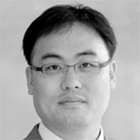 |
| INVITED |
|
 |
| . |
|
|
Byung Hee Hong
Seoul National University, Korea
Invited – Plenary Session
Byung Hee Hong is a full professor of chemistry department in Seoul National University, the director of SNU graphene research center for convergence technology, and the founder of Graphene Square and Biographene He pioneered the large-scale synthesis of graphene by CVD (Nature 457, 706 (2009), Nature Nanotech. 5, 574-578 (2010)), which triggered the applied researches toward the industrial production of graphene. Byung Hee Hong is the Founding/Regional Editor for 2D Materials journal and a Strategic Advisory Board Member for EU Graphene Flagship Project since 2012.
|
|
|
|
|
 |
| INDUSTRIAL FORUM |
|
 |
| . |
|
|
Cedric Huyghebaert
IMEC, Belgium
Invited - Industrial Forum
Cedric Huyghebaert is currently leading the nano-applications and – material engineering (NAME) group at imec dealing with the integration of nano materials as CNT and graphene and graphene related materials in functional applications. He is deputy of the wafer scale integration work package in the Graphene Flagship. He started as a junior researcher in the materials and component analyses group at imec. He studied the oxygen bean interactions during sputtering profiling of semiconductors. He received his PhD in Physics in 2006 at the KULeuven in Belgium. In 2005 he joined imecs pilot line as an integration engineer, especially dealing with the process contamination control. He was part of the packaging group from 2008 to 2010, working as a senior integration engineer dealing with the journey of bringing 3D-stacked IC integration from lab to fab.
|
|
|
|
|
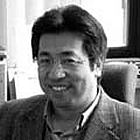 |
| WORKSHOP 6 |
|
 |
| . |
|
|
Seongil Im
Yonsei University, Korea
Invited – Workshop 6: Wearable and flexible devices
Seongil Im, applied physicist and device engineer, achieved Ph.D from UC at Berkeley in 1994 and worked as a research fellow at CALTECH from 1995 till 1996. He joined the dept. of Physics at Yonsei university as an associate professor in 1999. He’s been awarded many times as an excellent researcher from Yonsei university and Ministry of Science in Korean Government. Currently, he is the Director of van der Waals Materials Research Center (vdWMRC) at Yonsei. He has published more than ~280 peer-review journal papers including Applied Physics Letters, Advanced Materials, Nano Today, Nano Letters, IEEE Electron Device Letters, etc.
|
|
|
|
|
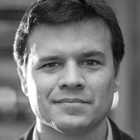 |
| PLENARY |
|
 |
| . |
|
|
Pablo Jarillo-Herrero
MIT, USA
Plenary Talk
Professor Jarillo-Herrero's research interests lie in the area of experimental condensed matter physics, in particular quantum electronic transport and optoelectronics in novel low dimensional materials, such as graphene and topological insulators (TIs). Pablo Jarillo-Herrero joined MIT as an assistant professor of physics in January 2008. He received his M.Sc. in physics from the University of Valencia, Spain, in 1999. Then he spent two years at the University of California in San Diego, where he received a second M.Sc. degree before going to the Delft University of Technology in The Netherlands, where he earned his Ph.D. in 2005. After a one-year postdoc in Delft, he moved to Columbia University, where he worked as a NanoResearch Initiative Fellow. His awards include the Spanish Royal Society Young Investigator Award (2007), an NSF Career Award (2008), an Alfred P. Sloan Fellowship (2009), a David and Lucile Packard Fellowship (2009), the IUPAP Young Scientist Prize in Semiconductor Physics (2010), a DOE Early Career Award (2011), a Presidential Early Career Award for Scientists and Engineers (PECASE, 2012), and an ONR Young Investigator Award (2013).
|
|
|
|
|
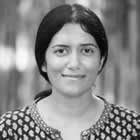 |
| WORKSHOP 4 |
|
 |
| . |
|
|
Hemamala Karunadasa
Stanford University, USA
Invited – Workshop 4: Energy
Hema Karunadasa is an assistant professor at Stanford University. She was an undergraduate at Princeton University and obtained her Ph.D. in Inorganic Chemistry from UC Berkeley. She did her postdoctoral research at the Lawrence Berkeley National Laboratory and at Caltech. She joined the Stanford Chemistry department in 2012. Her group uses solution-state methods to design hybrids that realize the advantages of molecules and extended solids in a single material. They target materials for various applications in clean energy: absorbers for solar cells, electrodes for rechargeable batteries, phosphors for solid-state lighting, and sorbents for atmospheric pollutants.
|
|
|
|
|
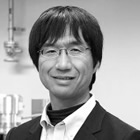 |
| INDUSTRIAL FORUM |
|
 |
| . |
|
|
Yukio Kawano
Tokyo Insitute of Technology, Japan
Invited - Industrial Forum
Yukio Kawano received the M.S. and Ph.D. degrees in basic science from the University of Tokyo in 1998 and 2001, respectively. From 2001 to 2006, he was an Assistant Professor with Department of Physics, the University of Tokyo, and from 2006 to 2011, a Research Scientist with RIKEN. He is currently an Associate Professor with Laboratory for Future Interdisciplinary Research of Science and Technology, Tokyo Institute of Technology. His research interests include terahertz science and technology and industrial and medical applications. He received the Young Scientists’ Prize, the Commendation for Science and Technology by the Minister of Education, Culture, Sports, Science and Technology in 2009, the Sir Martin Wood Prize in 2011, the Japan IBM Science Prize in 2011, the JSPS PRIZE in 2014, the Gottfried Wagener Prize, German Innovation Award, in 2014, and the DOCOMO Mobile Science Award in 2015.
|
|
|
|
|
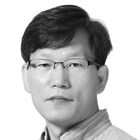 |
| INDUSTRIAL FORUM |
|
 |
| . |
|
|
Tae Hyeong Kim
LG Electronics , Korea
Invited - Industrial Forum
Tae Hyeong Kim joined LG Electronics in 1994. He received his PhD in Physical Chemistry from Sung Kyun Kwan University, Korea. He is a Principal Research Engineer of advanced materials team at Materials & Production Engineering Research Institute, LG Electronics Inc. He has been developing various nanomaterials such as CVD graphene, nanocellulose and ceramic nanopowder and so on from 2012. He is now pursuing the market development of CVD graphene as a raw materials for IT/ BT applications.
|
|
|
|
|
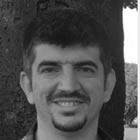 |
| WORKSHOP 6 |
|
 |
| . |
|
|
Coskun Kocabas
The University of Manchester, UK
Invited – Workshop 6: Wearable and flexible devices
Coskun completed his BSc (2001) and MSc in Physics (2003) at Bilkent University (Turkey). He received his PhD in Physics (2007) from University of Illinois at Urbana-Champaign (USA). After receiving his PhD, he worked at Harvard University as Postdoctoral Researcher, in Deapartment of Chemistry and Chemical Biology. Between 2009 and 2017, Coskun worked as assistant and associate professor at Bilkent University where he led the group of Smart Materials and Devices. His main research interest includes optoelectronic applications of graphene and other 2D materials. His research aims to understand and engineer electronic and optical responses of emerging 2D materials to fabricate new devices which cannot be realized by conventional semiconducting materials.
|
|
|
|
|
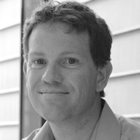 |
| INVITED |
|
 |
| . |
|
|
Frank Koppens
ICFO, Spain
Invited – Plenary Session
Prof. Koppens is the leader of the nano opto-electronics research group at ICFO, focussing mostly on research and technology development of graphene and 2d materials. Koppens is co-leader of the optoelectronics activities in the European Graphene flagship program, with total funding of one billion Euro (for 10 years).
|
|
|
|
|
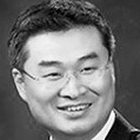 |
| INDUSTRIAL FORUM |
|
 |
| . |
|
|
Joung Hoon Lee
Standard Graphene, South Korea
Invited - Industrial Forum
Lee Joung Hoon, CEO of STANDARD GRAPHENE
Education
- Carnegie Mellon University, Industrial Management & Economics (1996)
- Harvard University, Senior Executive Program (1997)
- Duquesne University, MBA & MIS (1999)
Career
- IDT International Inc., Vice President (2014 – 2015)
- STANDARD GRAPHENE Inc, President (2015 – present)
Award & Activity
- CGI(Clinton Global Initiative) LEAD, Global 21 Leaders (2010)
- Fortune Korea, 2017 Korea Leader Award (2017)
|
|
|
|
|
 |
| PLENARY |
|
 |
| . |
|
|
Young Hee Lee
Sungkyunkwan University, South Korea
Plenary Talk
Professor Young Hee Lee obtained his Ph. D. at Kent State University in 1986 and did postdoctoral work in the Ames National Laboratory at Iowa and Michigan State University. He joined the physics faculty at Chonbuk National University in Korea and became a full professor in 1999, and then moved to the Sungkyunkwan University in Korea in 2001. In 2012 he was selected as the Director of the Center for Integrated Nanostructure Physics, Institute for Basic Science, located at Sungkyunkwan University, which he led for the first 3 years of its existence. Lee is a member of the Korea Academy of Science and Technology (2007) and nominated as the first Fellow of SKKU in 2007. Young Hee Lee has received numerous major awards for his work in the field of carbon-based nanomaterials and nandevices, and two-dimensional materials physics; these include Science Award in Korean Physical Society (2005), Nomination as ‘The National Scholar of Korea’ (2005), the Presidential Award (2008), Lee Hsun Award, Chinese Academy of Sciences, China (2007), and Sudang Award (2014).
|
|
|
|
|
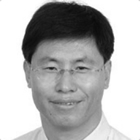 |
| PLENARY |
|
 |
| . |
|
|
Zhongfan Liu
Peking University, China
Plenary Talk
Prof. Zhongfan Liu got his PhD in University of Tokyo in 1990. He is now the BOYA Chair Professor of Peking University in chemistry, the Director of Beijing Graphene Institute, and the Vice President of Chinese Chemical Society. His research interest focusses on low dimensional carbon materials, including the CVD growth of graphene and single-walled carbon nanotubes and their unique applications. Prof. Liu has published over 560 peer-reviewed articles and over 100 patents. His recent contributions to graphene areas include, superclean graphene, super graphene glass, graphene optical fiber and photochemical band structure engineering of graphene. The major academic awards he received include, National Natural Science Awards (2008, 2017), Chinese Chemical Society-AkzoNobel Chemical Science Award (2012), Baogang Outstanding Teacher Award (2012), the Lectureship Award of 2016 Colloid and Surface Chemistry Annual Meeting of Chemical Society of Japan, Beijing Municipal Excellent Teacher (2017), and the 2018 ACS Nano Lectureship Award. He was elected as the member of Chinese Academy of Sciences in 2011 and as one of the six outstanding scientists in Ten-Thousand-Talents Program in 2013. Prof. Liu is the Fellow of the Institute of Physics (UK, 2004), the Fellow of Royal Society of Chemistry (UK, 2014) and the Fellow of TWAS(2015).
|
|
|
|
|
 |
| INDUSTRIAL FORUM |
|
 |
| . |
|
|
Martin R. Lohe
Sixonia / TUDresden
, Germany
Invited - Industrial Forum
Martin finished his PhD in inorganic chemistry and worked as a post-doc on the application and up-scaled production of porous materials before shifting his research focus towards graphene and 2D materials. He has profound experience in the field of process development and optimization as well as up-scaling and commercializing inorganic specialty materials. In January 2015 he joined the Chair of Molecular Functional Materials with the focus on upscaling the electrochemical exfoliation of graphene. He is currently working as research group leader and industry project coordinator at the Chair for Molecular Functional Materials at the Center for Advancing Electronics Dresden. In 2017 he started the TU Dresden Spin-Off company Sixonia Tech, which is focussing on upscaling and commercializing functionalized and easily processable E-Graphenes.
|
|
|
|
|
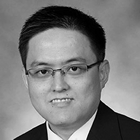 |
| WORKSHOP 2 |
|
 |
| . |
|
|
Jun Lou
Rice University, USA
Invited – Workshop 2: Chemistry 2DM
Jun Lou obtained B.E. and M.S. degrees in Materials Science and Engineering from Tsinghua University and Ohio State University, respectively, and his Ph.D. degree from the Department of Mechanical and Aerospace Engineering and Princeton Materials Institute at Princeton University. After a brief postdoc at Brown University he joined Rice University, and directs the Nanomaterials, Nanomechanics and Nanodevices Lab (N3L). He is currently a full professor and the associate chair of the Department of Materials Science and NanoEngineering. Lou was an AFOSR Young Investigator and a recipient of Charles Duncan Award for Outstanding Academic Achievement at Rice. He is the Editor-in-Chief of Materials Today, the Elsevier flagship journal covering original research and reviews in the broader materials science community. He currently serves as the site director for the NSF industry university collaborative research center (IUCRC) of Atomically Thin Multifunctional Coatings (ATOMIC) that has 12 member companies, exploring potential applications of 2D materials in different industries with commercial partners.
|
|
|
|
|
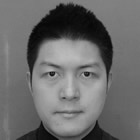 |
| INDUSTRIAL FORUM |
|
 |
| . |
|
|
Minyang Lu
CGIA, China
Invited - Industrial Forum
|
|
|
|
|
 |
| INDUSTRIAL FORUM |
|
 |
| . |
|
|
Mindaugas Lukosius
Institute for High Performance Microelectronics, Germany
Invited - Industrial Forum
Dr. Mindaugas Lukosius received M.Sc degree in Inorganic Chemistry in 2006 from the University of Vilnius, Lithuania. The Ph.D degree in Chemistry was obtained from the Carl von Ossietzky University Oldenburg,Germany in 2010, in the field of CVD depositions and developments of high-k MIM capacitors. Since 2006 he has been with the IHP where, in 2012, he joined the group of graphene research and is currently leading several projects of graphene synthesis by CVD as well as the integration of novel graphene modules into the BiCMOS technology. He authored and co-authored more than 50 peer-reviewed journal papers and held ~40 talks on national and international conferences.
|
|
|
|
|
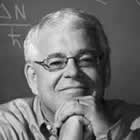 |
| INVITED |
|
 |
| . |
|
|
Allan H Macdonald
The University of Texas at Austin, USA
Invited – Plenary Session
Allan H. MacDonald received his B.Sc. degree from St. Francis Xavier University, Antigonish, Nova Scotia, Canada in 1973, and M.Sc. and Ph.D. degrees in physics from the University of Toronto. He was a member of the research staff of the National Research Council of Canada and has taught at Indiana University and the University of Texas at Austin. He has contributed to research on electronic structure theory, the quantum Hall effect, magnetism, and superconductivity, among a variety of other topics.
|
|
|
|
|
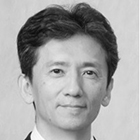 |
| WORKSHOP 5 |
|
 |
| . |
|
|
Kenzo Maehashi
Tokyo University Agriculture and Technology, Japan
Invited – Workshop 5: Biosensors and Medical Applications
He received his Ph. D. in Engineering form Osaka University in Japan. He was an Associate Professor in the Institute of Scientific and Industrial Research in Osaka University. Since 2014, he is a Professor in Institute of Engineering in Tokyo University of Agriculture and Technology. His research interests are in nanoscale electronic devices and their device applications. Recently, he is interested in development of gas sensors and biosensors based on carbon nanotubes and graphene
|
|
|
|
|
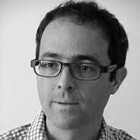 |
| WORKSHOP 3 |
|
 |
| . |
|
|
Francesco Mauri
Sapienza Università di Roma, Italy
Invited – Workshop 3: Theory & Simulation
Main research fields:
- My activity focuses on the prediction of the physical properties of complex materials using first-principles electronic structure methods and on the development of original theories, methods, and algorithms to treat interacting electrons and phonons. I am particularly interested in
- Simulation of spectroscopies (Raman, IR, NMR, EPR, Xanes, Inelastic X-ray scattering, EELS,...)
- Electron-phonon interaction and phonon mediated superconductivity
- Carbon nanotubes, graphene and 2D materials
- Anharmonicity, phonon-phonon interaction, CDW and thermal conduction
- Mineral-physics and geochemistry
- Amorphous materials
|
|
|
|
|
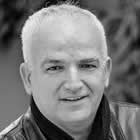 |
| WORKSHOP 5 |
|
 |
| . |
|
|
Arben Merkoci
ICREA-ICN2, Spain
Invited – Workshop 5: Biosensors and Medical Applications
Arben Merkoçi is currently ICREA Professor and director of the Nanobioelectronics & Biosensors Group at Institut Català de Nanociencia i Nanotecnologia (ICN2), a BIST centre situated at Autonomous University of Barcelona (UAB) campus (Bellaterra, Barcelona). After his PhD (1991) at Tirana University, in the topic of Ion-Selective-Electrodes (ISEs) designs and applications in clinical and environmental analysis, Dr. Merkoçi worked as postdoc at other European research centres and USA in the field of nanobiosensors and lab-on-a-chip technologies. His postdoc periods were followed by leading positions in several laboratories: (1997-2006) at Autonomous University of Barcelona and since 2006 in ICN2.
|
|
|
|
|
 |
| INDUSTRIAL FORUM |
|
 |
| . |
|
|
Julia Messner
Carbon Waters, France
Invited - Industrial Forum
Process manager
PhD Chemical engineering
5 yo in chemical processes
|
|
|
|
|
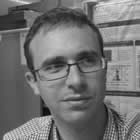 |
| WORKSHOP 2 |
|
 |
| . |
|
|
Alessandro Molle
CNR Institute for Microelectronics and Microsystems, Italy
Invited – Workshop 2: Chemistry 2DM
Dr. Alessandro Molle is a Senior Researcher at the Consiglio Nazionale delle Ricerche (CNR), Istituto per la Microelettronica e Microsistemi (IMM), unit of Agrate Brianza, where he carried out his Pot-Doc fellowship after his Ph.D. and MSc. from the University of Genoa. He has been chairing a M.Sc. and Ph.D. courses at the University of Milan-Bicocca and he co-edited a book on two-dimensional (2D) materials for nanoelectronics. He is principal investigator of an ERC Consolidator Grant 2017, and in charge of other national (Fondazione Cariplo, Regione Lombardia) and international (EU-FP7, EU-H2020) grants. He usually serves as symposium organizers in international meetings such the E-MRS and MRS. His main research interests are about the synthesis of two-dimensional materials like Xenes and transition metal dichalcogenides, and their device integration
|
|
|
|
|
 |
| INVITED |
|
 |
| . |
|
|
Anna Motta
Talga Resources Ltd, Australia
Invited – Plenary Session
Dr Anna Moisala Motta is the Global R&D manager of Talga. She has a PhD in Chemistry from University of Helsinki, Finland. Her research career spans from the National Research Centre of Finland (VTT) to the University of Cambridge with the focus on production and applications of carbon-based nanomaterials and metal nanoparticles with publications in Science and Nature Nanotechnology among others. Her research has led to commercialization of proprietary nanomaterial products via two separate companies. In recent years she has worked in technology transfer within commercial and academic settings. Before joining Talga she was the Project Manager and Technology Transfer Officer of the Cambridge Graphene Centre and acted as a member of the Science and Technology Forum of the Graphene Flagship (an advisory body to the Flagship). At Talga Anna leads the R&D teams in Cambridge UK and Rudolstadt, Germany, with focus on value added product development of graphene and micro-graphite in areas of coatings, composites, energy storage and construction.
|
|
|
|
|
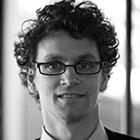 |
| INDUSTRIAL FORUM |
|
 |
| . |
|
|
Daniel Neumaier
AMO GmbH, Germany
Invited - Industrial Forum
Daniel Neumaier received the PhD degree in 2009 from the University of Regensburg. From 2006 until 2009 he worked at the University of Regensburg in the field of III/V spintronics. Since 2009 he his head of the Graphene-Group at AMO GmbH, a research foundry located in Aachen, Germany. He has managed several research projects on graphene and is currently leading the work-package on Electronic Devices in the Flagship-Project Graphene.
|
|
|
|
|
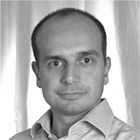 |
| INDUSTRIAL FORUM |
|
 |
| . |
|
|
Vincenzo Palermo
CNR-ISOF, Italy
Invited - Industrial Forum
Vincenzo Palermo obtained his Ph.D. in physical chemistry in 2003 at the University of Bologna, after working at the University of Utrecht (the Netherlands) and at the Steacie Institute, National Research Council (Ottawa, Canada).
He has published more than 130 scientific articles on international journals in chemistry, nanotechnology and materials science (>4000 citations, h-index=35).
Vincenzo Palermo holds a joint position as research director of the National Reseach Council of Italy, and research professor at Chalmers University of Technology in Gothenburg, Sweden, acting as vice-director of the Graphene Flagship. Between 2013 and 2017 he has been the leader of the work package on composites of the flagship.
He previously coordinated two large European research projects: GOSPEL (Graphene-Organic SuPramolEcular functionaL composites) and the International Training Network GENIUS (GraphenE-orgaNIc hybrid architectures for organic electronics: a mUltiSite training action), and was member of the scientific committee of EUROGRAPHENE programme of the ESF.
In 2012 Vincenzo Palermo won the Lecturer Award for Excellence of the Federation of European Materials Societies (FEMS) and in 2013 the Research Award of the Italian Society of Chemistry (SCI).
|
|
|
|
|
 |
| INDUSTRIAL FORUM |
|
 |
| . |
|
|
Seongjun Park
Samsung Advanced Institute of Technology, South Korea
Keynote - Industrial Forum
Seongjun Park, Ph.D. is a Vice President at Samsung Advanced Institute of Technology, Samsung Electronics. He is responsible for Nano Electronics Part in Device Lab including Graphene and 2D material-based research, Scanning Tunneling Microscopy, and three different sensor projects. His primary interests are developing devices in electronic, opto electronic, and energy applications using nano-structured materials including Graphene and 2D materials. He received his B.S. degree in Chemical Engineering from Seoul National University (1994). He worked for three years as a software engineer, before he received Ph.D in Chemical Engineering from Stanford University (2003). His thesis topic was quantum mechanical simulations on the chemical reactivity of fullerenes and Carbon Nanotubes. He spent 2 years as research associate in Multi-Scale Simulation Lab at Stanford University. He then joined Intel (2005) where he investigated material selections for front and back-end of lines based on quantum mechanical simulations. Since he joined Samsung in 2010 and he's been leading Graphene and 2D material based device research. He was the recipient of Nano Korea Symposium Award, Secretary Award from the Ministry of Science, Government of South Korea (2014), Annual Patent Award from Samsung Electronics (2014), Infinite Research Award from SAIT Samsung Electronics (2012, 2014), Research Master from SAIT Samsung Electronics (2013) and Samsung Best Paper Award for "Graphene Barristor" (2012).
|
|
|
|
|
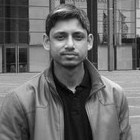 |
| WORKSHOP 6 |
|
 |
| . |
|
|
Khaled Parvez
University of Manchester, UK
Invited – Workshop 6: Wearable and flexible devices
Khaled Parvez received his B.Sc in Chemistry from Shah-Jalal University of Science & Technology, Bangladesh in 2006 and M.Sc in Polymer Science & Engineering from Chungju National University, South Korea in 2010. Then he joined Prof. Klaus Müllen’s group at the Max Planck Institute for Polymer Research, Germany, where he obtained his PhD in 2014. During his PhD, he made significant contribution to the development of electrochemical exfoliation of graphene for industrial scale production. From September 2014 to February 2016, he was appointed as a post-doctoral fellow in BASF, Germany. In June 2016 he joined in Prof. Cinzia Casiraghi’s group at the University of Manchester as a research associate, where he is currently working on inkjet printing of 2D materials based electronics devices. His research focuses on wet-chemical exfoliation and solution processing of 2D materials for applications in electronic and energy related applications. So far, he published more than 40 peer review articles with citations over 6400 times and h-index of 25.
|
|
|
|
|
 |
| INDUSTRIAL FORUM |
|
 |
| . |
|
|
Iwona Pasternak
ENT and WUT, Poland
Invited - Industrial Forum
Iwona Pasternak received her PhD in Materials Engineering with Honors in 2016. She has been working in the graphene research area since 2011 starting at Institute of Electronic Materials Technology (ITME), Poland. In 2017 she joined Faculty of Physics at Warsaw University of Technology (WUT) where she develops the graphene and other 2D materials growth technology. Currently, she is cooperating with ENT SA, within technology of epitaxial structures of III-V semiconducting compounds, SiC, graphene and other 2D materials for custom or short-run production. She is the laureate of the scholarship for outstanding young scientists awarded by the Ministry of Science and Higher Education. She authored and co-authored more than 60 peer-reviewed journal papers and 6 patent applications.
|
|
|
|
|
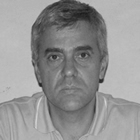 |
| INVITED |
|
 |
| . |
|
|
Marcos Pimenta
UFMG, Brazil
Invited – Plenary Session
Marcos A. Pimenta is since 1989 professor at the Department of Physics of Federal University of Minas Gerais (UFMG) in Belo Horizonte, Brazil, and in 1992 he created the Raman spectroscopy Laboratory at UFMG. In 1997, he started the research area of carbon nanomaterials (nanotubes and graphenes) at UFMG using, mainly, Raman spectroscopy. He published around 200 articles and his h-factor is 59. He has won national and international awards, including the Scopus-CAPES prize in 2008 for the visibility of his scientific works, the Somyia award in 2009, delivered by the IUMRS, for the collaborative works with US, México and Japan groups. In 2010, he received the command of the Brazilian Order of Scientific Merit, and was ellected as a full member of the Brazilian Academy of Sciences. He got the 2013 TWAS Prize in Physics and the 2014 Marcos Mares-Guia Prize (FAPEMIG) in Minas Gerais, Brazil. He is a member of the Brazilian Academy of Sciences and the Brazilian Physical Society. Currently, he is the director of the Brazilian Institute for Science and Technology (INCT) of Carbon Nanomaterials and the president of the Brazilian Physical Society (SBF)
|
|
|
|
|
 |
| WORKSHOP 5 |
|
 |
| . |
|
|
Maurizio Prato
University of Trieste, Italy
Invited – Workshop 5: Biosensors and Medical Applications
Prof. Maurizio Prato has made numerous significant scientific contributions to the field of Organic Chemistry applied to Nanosciences by enabling innovative, controlled and reproducible ways to make intractable materials, such as carbon nanotubes and graphene, useful materials for sensing, catalysis, drug delivery, as well as in neurosciences and energy-relevant technologies.
Has published more than 600 papers on international peer reviewed Journals, with a total of around 40,000 citations and an h-index of 97. Has been invited to more than 200 conferences and workshops in the last 10-15 years as a plenary or keynote speaker, and has given more than 50 invited talks in Universities or research centers all around the world.
|
|
|
|
|
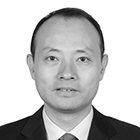 |
| WORKSHOP 6 |
|
 |
| . |
|
|
Tian-Ling Ren
Tsinghua University, China
Invited – Workshop 6: Wearable and flexible devices
Prof. Ren got his Ph.D. from Department of Modern Applied Physics, Tsinghua University in 1997. He has been full professor of Institute of Microelectronics of Tsinghua University since 2003. He was a visiting professor at Electrical Engineering Department of Stanford University in the United States of America from 2011 to 2012. For these years, as the principal investigator, Prof. Ren has undertaken many key research projects such as Key Project of National Natural Science Foundation, National High Technology Program of Ministry of Science and Technology, etc. Prof. Ren’s research interest covers a broad range of advanced micro- and nano- electronics devices and integrated systems, including intelligent sensor technology, 2d-material based electronic devices, novel memory technology, micro- and nano- sensors and systems, flexible micro-electronic devices and systems, etc. He has published over 500 papers in international journals and conferences, including Nature Communications, Energy & Environmental Science, Advanced Materials, Nano Letters, ACS Nano, Nanoscale, Applied Physics Letters, IEEE Electron Device Letters, and 13 International Electron Devices Meeting(IEDM) papers. Also, Prof. Ren has obtained more than 70 patents
|
|
|
|
|
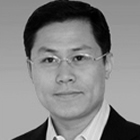 |
| INDUSTRIAL FORUM |
|
 |
| . |
|
|
Wencai Ren
Chinese Academy of Sciences, China
Invited - Industrial Forum
Wencai Ren is a professor at Institute of Metal Research (IMR), Chinese Academy of Sciences (CAS). He received his Ph. D. degree in materials science from IMR, CAS in 2005, and worked with Prof. Andre K. Geim at the University of Manchester from 2009 to 2010. His research interests mainly focus on the synthesis of graphene and other two-dimensional materials and their applications in energy storage, composites and optoelectronics. He has published over 70 peer-reviewed papers in Nature Mater., Nature Commun., PNAS, Adv. Mater., ACS Nano, J. Am. Chem. Soc. etc., and filed more than 20 patents.
|
|
|
|
|
 |
| INVITED |
|
 |
| . |
|
|
Joshua A. Robinson
Pennsylvania State University, USA
Invited – Plenary Session
Dr. Robinson obtained his B.S. degree in Physics with minors in Chemistry and Mathematics from Towson University in 2001. He received his doctorate degree from The Pennsylvania State University in Materials Science and Engineering in 2005. From there, he joined the Naval Research Laboratory in Washington D.C. as an NRC Post Doctorate Fellow where he developed highly carbon nanotube devices for detection of explosives and nerve agents. In 2007, Dr. Robinson joined the Penn State Electro-Optics Center as a research associate in the Materials Division and most recently (2012) joined the Penn State Materials Science and Engineering Department as an Assistant Professor. In 2013, he co-founded the Center for Two-Dimensional and Layered Materials, and currently serves as Associate Director of the Center. In July 2015, he became Co-Director of the NSF I/UCRC Center for Atomically Thin Multifunctional Coatings (ATOMIC).
|
|
|
|
|
 |
| WORKSHOP 2 |
|
 |
| . |
|
|
Paolo Samori
Université de Strasbourg, France
Invited – Workshop 2: Chemistry 2DM
Paolo Samorì is Distinguished Professor at the Université de Strasbourg, Director of the Institut de Science et d’Ingénierie Supramoléculaires (ISIS) and Director of the Nanochemistry Laboratory. He is also Foreign Member of the Royal Flemish Academy of Belgium for Science and the Arts (KVAB), Fellow of the Royal Society of Chemistry (FRSC), Fellow of the European Academy of Sciences (EURASC), Member of the Academia Europaea and Junior Member of the Institut Universitaire de France (IUF). He obtained a Laurea (master’s degree) in Industrial Chemistry at University of Bologna in 1995. In 2000, he received his PhD in Chemistry from the Humboldt University of Berlin. He was permanent research scientist at Istituto per la Sintesi Organica e la Fotoreattività of the Consiglio Nazionale delle Ricerche of Bologna from 2001 to 2008 and Visiting Professor at ISIS from 2003 to 2008. He has published >300 papers on nanochemistry, supramolecular sciences, materials chemistry, and scanning probe microscopies with a specific focus on graphene and other 2D materials as well as functional organic/polymeric and hybrid nanomaterials for application in optoelectronics, energy and sensing. His work has been awarded various prizes, including the E-MRS Young Scientist Award (1998), the MRS Young Scientist Award (2000), the IUPAC Prize for Young Chemists (2001), the “Vincenzo Caglioti” Award (2006), the “Nicolò Copernico” Award (2009), the “Guy Ourisson” Prize (2010), the ERC Starting Grant (2010), the CNRS Silver Medal (2012), the Spanish-French “Catalán-Sabatier” Prize (2017), the German-French “Georg Wittig - Victor Grignard” Prize (2017), the RSC Surfaces and Interfaces Award (2018), the Blaise Pascal Medal in Materials Science of EURASC (2018), the Pierre Süe Prize of the French Chemical Society (2018) and the ERC Advanced Grant (2019). He is Associate Editor of Nanoscale and Nanoscale Advances (RSC) and Member of the Advisory Boards of Advanced Materials, Small, ChemPhysChem, ChemNanoMat, ChemPlusChem and ChemSystemsChem (Wiley-VCH), Chemical Society Reviews, Chemical Communications, Nanoscale Horizons and Journal of Materials Chemistry (RSC), ACS Nano and ACS Omega (ACS).
|
|
|
|
|
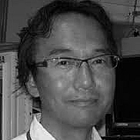 |
| INDUSTRIAL FORUM |
|
 |
| . |
|
|
Shintaro Sato
Fujitsu Laboratories Ltd., Japan
Invited - Industrial Forum
Shintaro Sato received his Ph.D. from the Department of Mechanical Engineering, University of Minnesota, in 2001. In the same year, he joined Fujitsu Limited. He became a staff researcher in 2002 and a senior researcher of Fujitsu Laboratories Ltd. in 2007. He also worked for Semiconductor Leading Edge Technologies, Inc., from 2006 to 2010 and for the National Institute of Advanced Industrial Science and Technology from 2010 to 2014. He is currently a project director of Fujitsu Laboratories Ltd. His main research area includes synthesis and evaluation of nanocarbon materials and their applications to electronic and quantum devices. He is Fellow of Japan Society of Applied Physics.
|
|
|
|
|
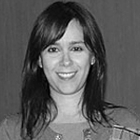 |
| WORKSHOP 1 |
|
 |
| . |
|
|
Miriam Serena Vitiello
CNRNANO, Italy
Invited – Workshop 1: Growth of High Quality 2D Materials for Optoelectronics and Photonics
Miriam Serena Vitiello obtained her PhD in physics at University of Bari in 2006. During her PhD she was visiting scientist for short research stages at the Technical University of Delft (April-June 2004, December 2004), at the Technische Universität of Munchen (July 2004), and at University of Paris (2005). From 2006 to December 2009 she was a Post-Doctoral Research assistant at the University of Bari. Since July 2010, she is group leader at the National Enterprise of Nanoscience and Nanotechnology and at the Nanoscience Institute of the National Research Council.
Since 2015 she is contract Professor of Condensed Matter Physics at the Scuola Normale Superiore.
Since 2017 she is Director of Research at CNR.
The THz photonics and optoelectronics group of Prof. Vitiello focuses on the design, development and applications of THz quantum cascade lasers; the development of THz nanostructured detectors based on semiconductor nanowires, 2D materials and vdW heterosctructures; far-infrared metrology; graphene-based photonics; near-field THz microscopy.
Prof. Vitiello has received the starting grant FIRB futuro in Ricerca from the Italian ministry of education and research, the ERC Consolidator Grant (2016), two EU-FET open projects, an EU ITN project, the Balzan research projects, three national research grants, and she coordinates the THz working group in the graphene flagship.
Since 2018, Prof. Vitiello is member of the Scientific Council of the National Institute of Metrology
She is co-author of 160-refereed papers on international journals, holds 1 patent and delivered more than 90 invited talks and 10 plenary lectures at international conferences
|
|
|
|
|
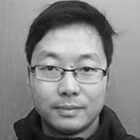 |
| WORKSHOP 1 |
|
 |
| . |
|
|
Haofei Shi
Chinese Academy of Sciences, China
Invited – Workshop 1: Growth of High Quality 2D Materials for Optoelectronics and Photonics
Haofei Shi is a professor of Chongqing Institute of Green and Intelligent Technology, Chinese Academy of Sciences. He started up the Chongqing Graphene Tech. Co., Ltd. and serves as the chief scientist of the company, where they completed the 1st and 2nd generation graphene film mass production line, and involved in the commercialization of graphene film. His research interests include synthesis of graphene film, fabrication of functional optoelectronics and electronics devices, and their application in information and energy related systems.
|
|
|
|
|
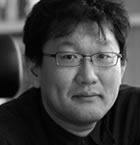 |
| WORKSHOP 3 |
|
 |
| . |
|
|
Young-Woo Son
Korea Institute for Advanced Study, South Korea
Invited – Workshop 3: Theory & Simulation
Young-Woo Son has studied physical properties of various materials based on first-principles computational approach.
Sep. 2008− : Professor, Korea Institute for Advanced Study, Seoul, Korea
2007−Aug. 2008 : Assistant Professor, Department of Physics, Konkuk University, Seoul, Korea
2004−2006 : Postdoctoral Scholar, Department of Physics, UC Berkeley and LBNL
2004 : Ph.D. in Physics at Seoul National University, Seoul, Korea
|
|
|
|
|
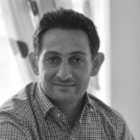 |
| INDUSTRIAL FORUM |
|
 |
| . |
|
|
Emmanuel Stratakis
FORTH, Greece
Invited - Industrial Forum
Dr Emmanuel Stratakis is a Research Director at the Institute of Electronic structure and laser (IESL) (www.iesl.forth.gr) of the Foundation for Research and Technology—Hellas (FORTH) (www.forth.gr). He received his Ph.D. in Physics from the University of Crete in 2001 from the Physics Department, University of Crete. After graduating, he joined as a visiting Researcher the IESL-FORTH working on the ultrafast laser engineering of materials and as an Adjunct Professor at the Department of Materials Science and Technology, University of Crete. In the fall semesters of 2006 and 2008 he was appointed as a visiting Researcher at the Department of Mechanical Engineering of the University of California, Berkeley. In 2007 he was elected Researcher at IESL-FORTH where he is leading the “Ultrafast Laser Micro- and Nano- processing” laboratory (http://stratakislab.iesl.forth.gr. His research interests are in the fields of ultrafast laser interactions with materials for (a) Biomimetic micro- and nano- structuring (b) Laser engineering and diagnostics of Graphene and other 2D materials (c) Advanced photonic processes for photovoltaics and energy storage, c) and (d) biomaterials processing for tissue engineering. He has delivered more than 40 invited and keynote lectures and has been organizer and chair in major international scientific conferences. He has over 180 SCI publications and more than 6500 citations and he has coordinated many National and EU grants. Since 2015, he is the Director of the European Nanoscience Facility of FORTH, part of the NFFA-Europe EU Infrastructure, where he is a member of the General Assembly. He is a National Representative to the High-Level Group of EU on Nanosciences, Nanotechnology and Advanced Materials and a National Expert for the Horizon 2020 committee configurations on: Nanotechnologies, Advanced materials, Biotechnology, Advanced Manufacturing and Processing. He is a member of the Scientific Committee of COST, of the Physical Sciences sectoral scientific council of the National Council for Research & Innovation of Greece and national Delegate of the OECD Working Party on Bio-, Nano- and Converging Tech (BNCT).
|
|
|
|
|
 |
| WORKSHOP 1 |
|
 |
| . |
|
|
Alexander Tartakovskii
University of Sheffield, UK
Invited – Workshop 1: Growth of High Quality 2D Materials for Optoelectronics and Photonics
|
|
|
|
|
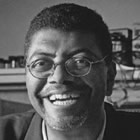 |
| INVITED |
|
 |
| . |
|
|
Eunezio A. Thoroh de Souza
MackGraphe, Brazil
Invited – Plenary Session
Received in 1986 the B.S. degree in Physics from University of São Paulo (USP) and Sc.D. degree also in Physics from University of Campinas (Unicamp) in 1992. From 1992 to 1995, he was post-doc at the advanced photonics department at AT&T Bell Laboratories, Holmdel-NJ, involved in projects as "High speed soliton optical switching", "Optoelectrical quantum well device and optical image processing" and "Femtosecond wavelength division multiplexing".
In 1996, he joined as professor the Physics Institute of University of Brasilia, Brasilia, DF, where he founded the Photonics Group. Since 2003 he is professor of Physics and Electrical Engineering at University of Mackenzie. His main interests are Graphene photonics and ultrafast sources for optical communications.
|
|
|
|
|
 |
| INVITED |
|
 |
| . |
|
|
Sergio O. Valenzuela
ICREA/ICN2, Spain
Invited – Plenary Session
Prof. Sergio Valenzuela obtained his PhD in physics in 2001 at the Universidad de Buenos Aires (Argentina) and held research positions at Harvard University and the Massachusetts Institute of Technology (MIT). Since July 2008 Prof. Valenzuela has been an ICREA research professor and leader of the ICN2 Physics and Engineering of Nanoelectronic Devices Group.
His research is focused on the unique properties of materials with nanoscale dimensions, motivated by both their intrinsic scientific interest and their potential for advanced electronic applications. His work encompasses spintronics, quantum computation with superconducting circuits and nanoelectromechanical systems (NEMS). Together with his collaborators, he has pioneered the use of non-local devices to study the spin Hall effect of thermopiles to isolate the magnon drag in ferromagnetic materials, and implemented novel qubit control and spectroscopy methods.
Prof. Valenzuela was awarded the 2001 Giambiagi prize and the 2009 IUPAP Young Scientist Prize in Magnetism for his contributions to the field of spintronics, as well as an ERC Starting Grant in 2012. He has authored over 50 articles (Nature, Science, Reviews of Modern Physics, Nature Materials, Nature Physics, Physical Review Letters, among others), three patents, and five books or book chapters.
|
|
|
|
|
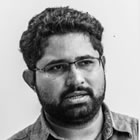 |
| INDUSTRIAL FORUM |
|
 |
| . |
|
|
Aravind Vijayaraghavan
The University of Manchester, UK
Invited - Industrial Forum
Dr. Aravind Vijayaraghavan is a Reader in Nanomaterials in the School of Materials and the National Graphene Institute at The University of Manchester. He leads the Nano-functional Materials Group (www.nanofunc.com) and his research involves the science and technology of graphene and 2-dimensional materials, particularly for applications in composites, sensors and biotechnology. He was previously a post-doctoral research fellow at Massachusetts Institute of Technology, USA and an Alexander von Humboldt Fellow at Karlsruhe Institute of Technology, Germany. He obtained his MEng (2002) and PhD (2006) from Rensselaer Polytechnic Institute, USA and his BTech (2000) from the Indian Institute of Technology - Madras, India. He has published over 80 papers in international peer reviewed journals and delivered over 60 presentations at international conferences. Dr. Vijayaraghavan is also a leader in public engagement and science communication and won the 2013 Joshua Phillips Award for Innovation in Science Engagement and was Science Communicator in Residence at the 2013 Manchester Science Festival. He has also been awarded a Royal Society Pairing Scheme Award (2013) and a British Science Association Media Fellowship (2017). He has delivered over 40 public lectures. He is the founder of two spin-out companies, Grafine Ltd. (www.gra-fine.com) and Atomic Mechanics Ltd. (www.atomic-mechanics.com) which commercialise applications of graphene in the fields of composites and sensors respectively.
|
|
|
|
|
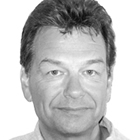 |
| INDUSTRIAL FORUM |
|
 |
| . |
|
|
Helge Weman
CrayoNano AS, Norway
Invited - Industrial Forum
Dr. Helge Weman is a professor in nano-electronics at the Norwegian University of Science and Technology (NTNU) in Trondheim, Norway. He received his PhD in semiconductor physics in 1988 from Linköping University, Sweden. During his career, he has held various positions at UCSB, NTT, EPFL and IBM Res. Lab Zurich. Since 2005 Weman is leading a research group at NTNU on III-V semiconductor nanowire/graphene hybrid devices for use in optoelectronic applications. He is the coordinator of the M-era.Net project “Semiconductor Nanowire/Graphene Hybrids for High-Efficiency LEDs” consisting of academic and industrial partners from Norway and South Korea. Prof. Weman is a member of the Norwegian Academy of Technical Sciences (NTVA).
He is the founder and CSO of CrayoNano AS who are now developing deep UV LEDs using graphene as substrate and transparent electrode. CrayoNano is partner of the EU Graphene Flagship and involved in the EUROSTAR project “CMOS Fab-compatible Graphene”.
|
|
|
|
|
 |
| INDUSTRIAL FORUM |
|
 |
| . |
|
|
Rune Wendelbo
Abalonyx, Norway
Invited - Industrial Forum
Rune Wendelbo is CEO of Abalonyx AS and Graphene Batteries AS. He holds a PhD from the University of Oslo, 1987, and has previously worked with R&D at Sintefs department for catalysis in Oslo, founded Abalonyx AS in 2005, now a well established producer of graphene oxide and Graphene oxide derivatives. He has worked with graphene oxide production and applications in Abalonyx, specifically with scale-up of a safe production process and development of a range of graphene oxide derivatives as well as a range of applications. In 2012 he established Graphene Batteries AS together with Dr. Rahul Fotedar, a company engaged in the development of new and improved cathode materials for batteries taking advantage of our knowledge and access to graphene derivatives. He has about 30 publications and about 20 patent and received ”SINTEFs prize for excellent research” in 2002.
|
|
|
|
|
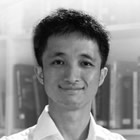 |
| INVITED |
|
 |
| . |
|
|
Wang Yao
The University of Hong Kong, Hong Kong
Invited – Plenary Session
Wang Yao obtained his BSc from Peking University in 2001, and PhD in physics from University of California, San Diego in 2006. He joined the University of Hong Kong in September 2008, and is currently a full professor in the Department of Physics. His research interest lies in the physics of spin and pseudospins in solids, with a current focus on two-dimensional materials and their heterostructures. He has received the OCPA Achievement in Asia Award (Robert T. Poe Prize) in 2014, the Croucher Innovation Award in 2013, and is recognized by Clarivate Analytics in the list of "Highly Cited Researchers".
|
|
|
|
|
 |
| WORKSHOP 4 |
|
 |
| . |
|
|
Guihua Yu
The University of Texas at Austin, USA
Invited – Workshop 4: Energy
Dr. Yu earned his Ph.D. degree in Chemistry from Harvard University in 2009, after graduating from the University of Science and Technology of China (USTC) in Chemistry with the highest honor in 2003. With three years' postdoctoral research at Stanford University (2009-2012), Dr. Yu joined the faculty of Mechanical Engineering at the University of Texas at Austin in 2012 as an assistant professor of Materials Science.
|
|
|
|
|
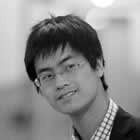 |
| WORKSHOP 4 |
|
 |
| . |
|
|
Chuanfang Zhang
ETH Empa, Switzerland
Invited – Workshop 4: Energy
Chuanfang (John) Zhang completed his Ph.D. project from East China University of Science and Technology (ECUST), Shanghai, China and Drexel University, Philadelphia, USA under the supervision of Prof. Yury Gogotsi in 2011–2014. From 2015 to 2019, he works in Trinity College Dublin, Ireland as a senior ERC-funded research fellow, focusing on scalable production of high-quality two-dimensional nanosheets-based thin films, flexible electronics and devices, such as supercapacitors, rechargeable batteries etc. In particular, he works on carbides and nitrides (MXene) and additive manufacturing of MXene based functional devices. He has authored more than 40 SCI papers as the first author/corresponding author on leading journals including Nature Comm., Adv. Mater., Adv. Funct. Mater., ACS Nano etc., with citations >2400 and H-index of 26. He has contributed one chapter for the Springer Nature on transparent MXene-based thin films and devices. He was awarded as the Scientist of the Year, Staff member of the Year and Young Leader of the Year of 2016 and 2018, awarded by the Irish Lab Awards committee.
|
|
|
|
|
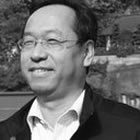 |
| INVITED |
|
 |
| . |
|
|
Jin Zhang
Peking University, China
Invited – Plenary Session
Professor Jin Zhang received his PhD from Lanzhou University in 1997. After a two year postdoctoral fellowship at the University of Leeds, UK, he joined to Peking University where he was appointed Associate Professor (2000) and promoted to Full Professor in 2006. His research focuses on the controlled synthesis and spectroscopic characterization of carbon nano-materials. Dr. Zhang has received the National Science Foundation of China for Distinguished Young Scholars in 2007 and 2nd grade of the State Natural Science Award in 2008 (2nd contributor). Dr. Zhang has published over 150 peer-reviewed journal articles. And he now is the editor of Carbon.
|
|
|
|
|
| |
|
|
|
|
|
 |
|